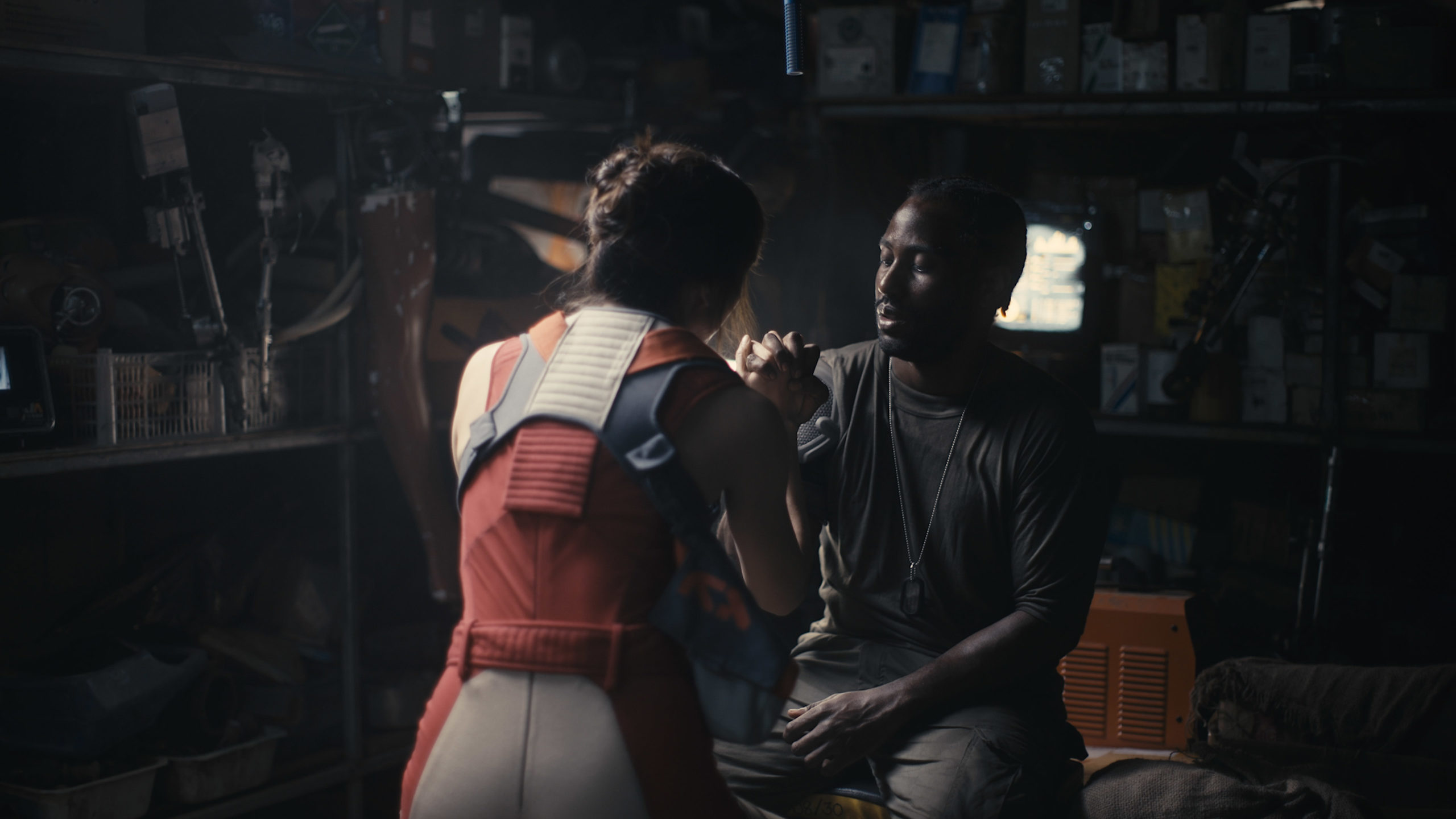
This science fiction action thriller tackles philosophical themes of war, Western expansionism, love, and religion, and pulls it off with style and emotion.
By CHIN JIAN WEI
Director Gareth Edwards of Rogue One and Godzilla fame brings us an ambitious and thought-provoking Science Fiction action thriller in the form of The Creator. The movie depicts a future where AI has become so commonplace that robots have integrated into society, working and living alongside humans. However, after a nuclear attack launched by AI leaves countless Americans dead, the USA declares war on all AI. Global conflict breaks out after the Asian countries refuse to give up the robots living among them, with American soldiers invading the Asian countries to root out, destabilise and exterminate all AI presence there.
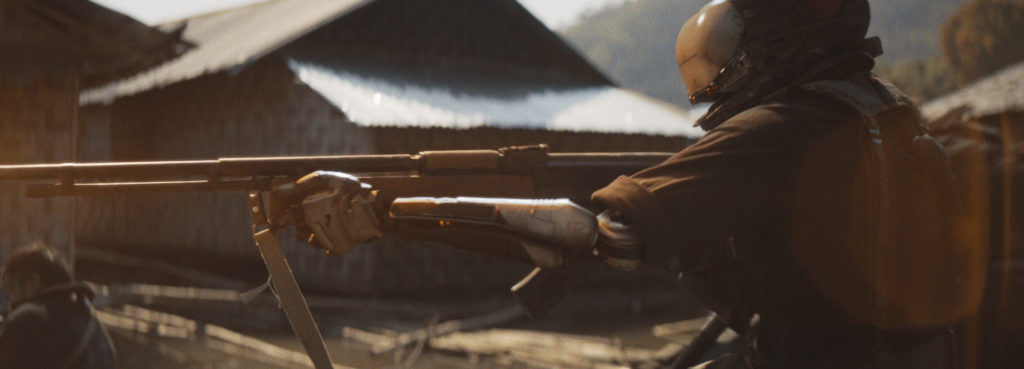
It is in this time of war that we are introduced to our main protagonist, Joshua (played by John David Washington), an American special forces agent in deep cover in Asia. Joshua’s mission is to find and kill the Creator, a genius inventor responsible for much of the advanced AI keeping Asia in the war. To do this, he gets close to a human woman named Maya (played by Gemma Chan), a key figure among the AI belligerents, and has ties to the enigmatic Creator. When the movie begins, Joshua has happily married Maya, who is pregnant with his child. This happiness is not to last. In a tragic turn of events, Joshua’s cover is broken, and his wife, Maya, disappears along with his unborn child. They are presumed dead.
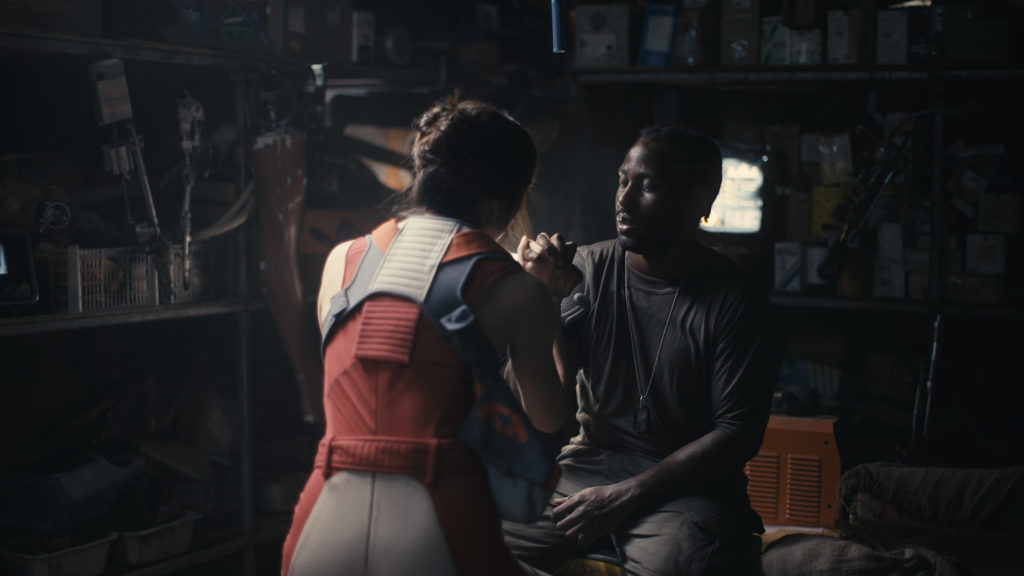
When we catch up with Joshua again, years have passed. Joshua is now a shell of a man, having given up on life and the war ever since losing his wife. One day, he is recruited by the US government, who have a new lead on the elusive Creator, and intel on an AI superweapon that could end the war. Seduced by rumours that Maya may still be alive in Asia, Joshua agrees to join the mission. He and a team of operatives journey into the dark heart of AI-occupied Asia, where they discover that the superweapon is an AI in the form of a young child (played by Madeleine Yuma Voyles). When Joshua realises the child, whom he dubs Alphie, knows the whereabouts of Maya, he deviates from the mission and travels across the continent to find Maya. As Joshua and Alphie travel together, Joshua finds his conviction and entire belief system challenged by his developing bond with Alphie.
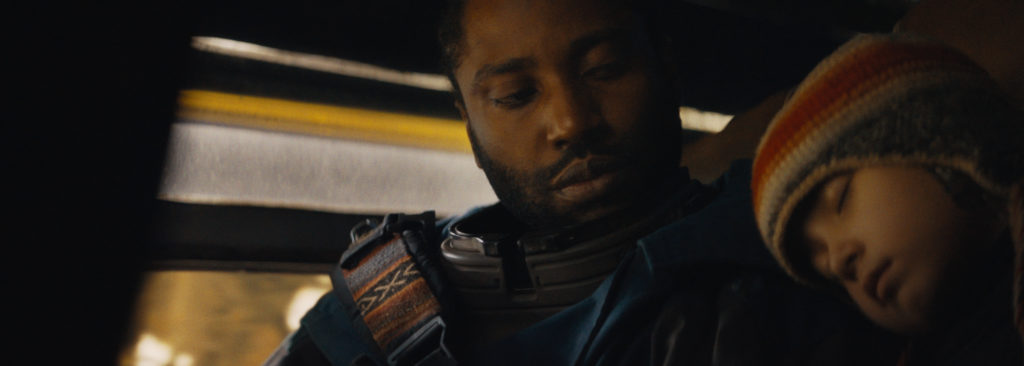
This is a movie that tackles a lot of heady themes. Edwards has cited movies such as Apocalypse Now, Blade Runner, and Akira as influences, and it shows. In this writer’s opinion, science fiction at its purest is about looking at advancements in science and how it would affect human society. AI has been something that scientists and writers have been concerned with for over a century, with possibly the earliest fiction concerning AI dating back to William Grove’s 1889 novel The Wreck of the World, featuring sentient machines that rebel against humanity. As AI gets increasingly advanced in the real world, these social concerns become more pressing than ever before. The Creator simultaneously offers an optimistic and cynical view on the role of AI in mankind’s future. To some segments of humanity, the robots are accepted as equals deserving of human rights, coexisting peacefully. To others, they are seen as a fundamental threat to human civilisation. Joshua, at least in the beginning, sees AI as lesser beings, incapable of feeling true emotions. He dismisses their emotional expressions as being merely the result of programming.
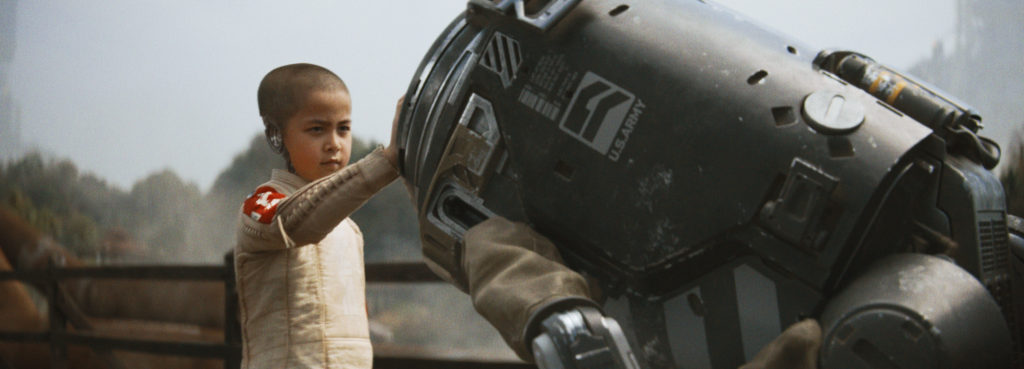
Therein lies one of the central themes of this movie: what is love? For generations, artists and philosophers have considered it a uniquely human emotion, and perhaps our most powerful one. But if an entity is programmed with the capacity to feel love, is that love any less valid? Evolutionary psychologists may posit that we evolved the capacity for love to benefit the survival of the tribe and thus humanity in general. If that is true, is that really any different than a robot programmed to love to benefit the community? The movie does present its stance on this issue multiple times, but audience opinions may vary.
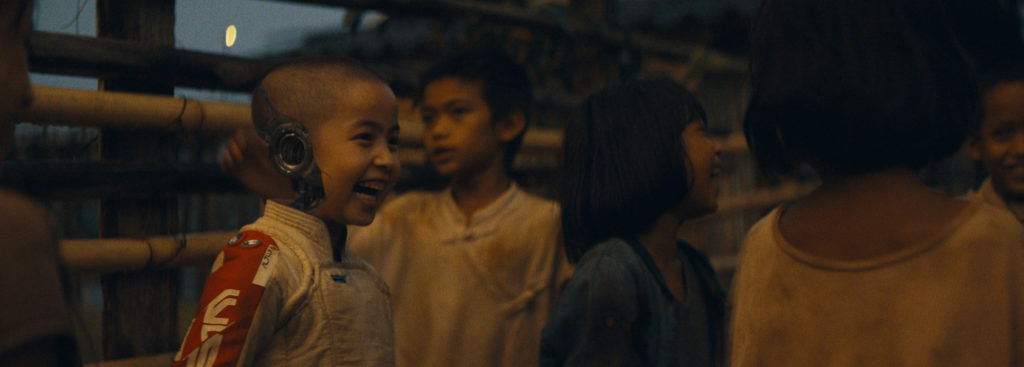
On a similar note, the movie is also interested in exploring ideas on the soul and religion. Alphie, as an artificial life form, worries that she may never go to heaven as she is not a person. The super-weapon employed by humanity is a gigantic winged aircraft, looming over the landscape and raining down judgment from the heavens in pulses of brilliant light, suggesting the vengeance of a divine authority bent on exterminating its wayward creations. In the mountaintops of Asia, some robots have taken to worshipping the Creator and dress in Buddhist-style monk robes.
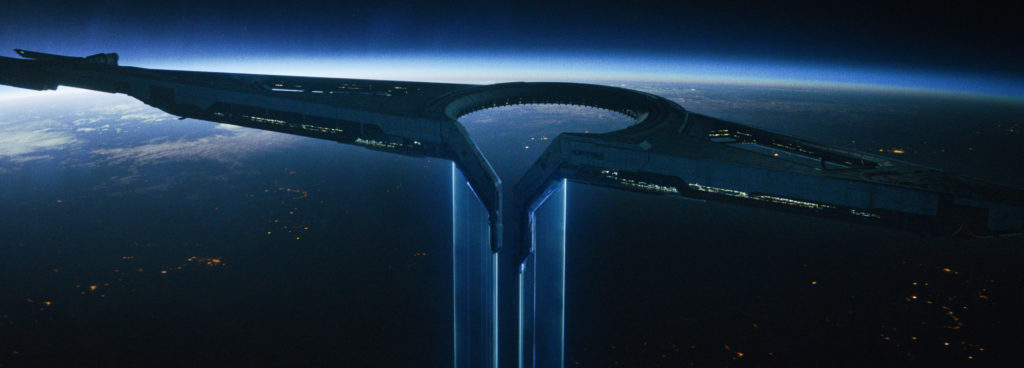
The movie is also a critique of US foreign policy and expansionism. The Americans are portrayed as belligerent and aggressive, using intimidation and violence to scare natives and get their way. They meddle in the politics of other nations, espousing their cause as just even as we see the consequences of their brutality. The movie does not shy away from depicting the horrors of war, showing the countless civilians mown down or blown up in the crossfire, with the Asian setting reminding audiences of the horrific Vietnam War. Even the main protagonist’s actions, even when he believes he is acting for the greater good, result in many casualties. No blood or gore is shown, but the emotional devastation in the aftermath of violence is visceral. However, the villains are not cartoonish, and ample motivation for their hatred of AI is given. One could argue that the true villain of the movie is not any one character, but rather the horrors of war and the lies told to justify it.
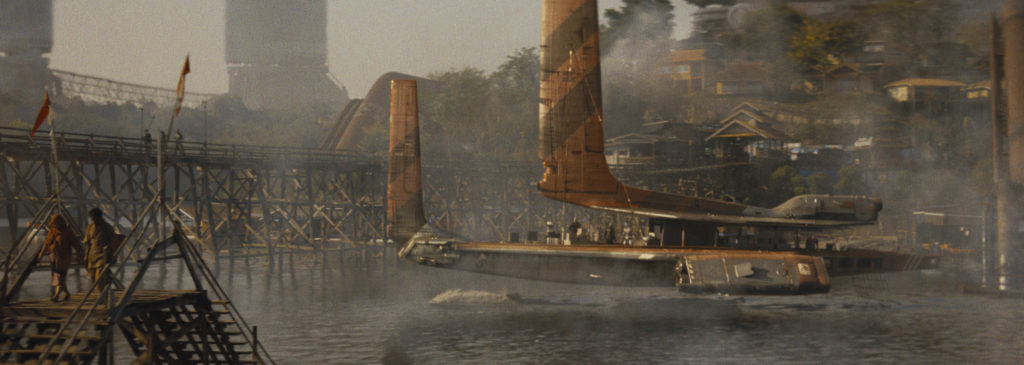
From a visual art perspective, the movie also abounds with striking imagery. While we have seen robots and lifelike androids depicted in movies countless times, the Asian setting of the movie helps give it a unique visual language. Think robots harvesting crops in paddy fields, riding in rickety vehicles along Southeast Asian country roads, meditating in Buddhist-inspired temples, and of course, living in cyberpunk megacities.
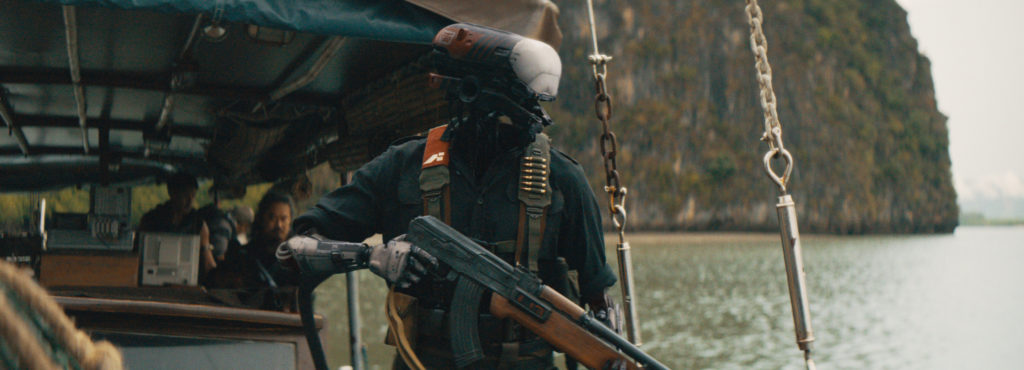
While this is billed as an action movie, this is no John Wick. The action scenes are serviceable but seem to serve mostly to illustrate the cost of war. Regardless, this is a movie that is far more interested in philosophical musing than the choreography of gunfights.
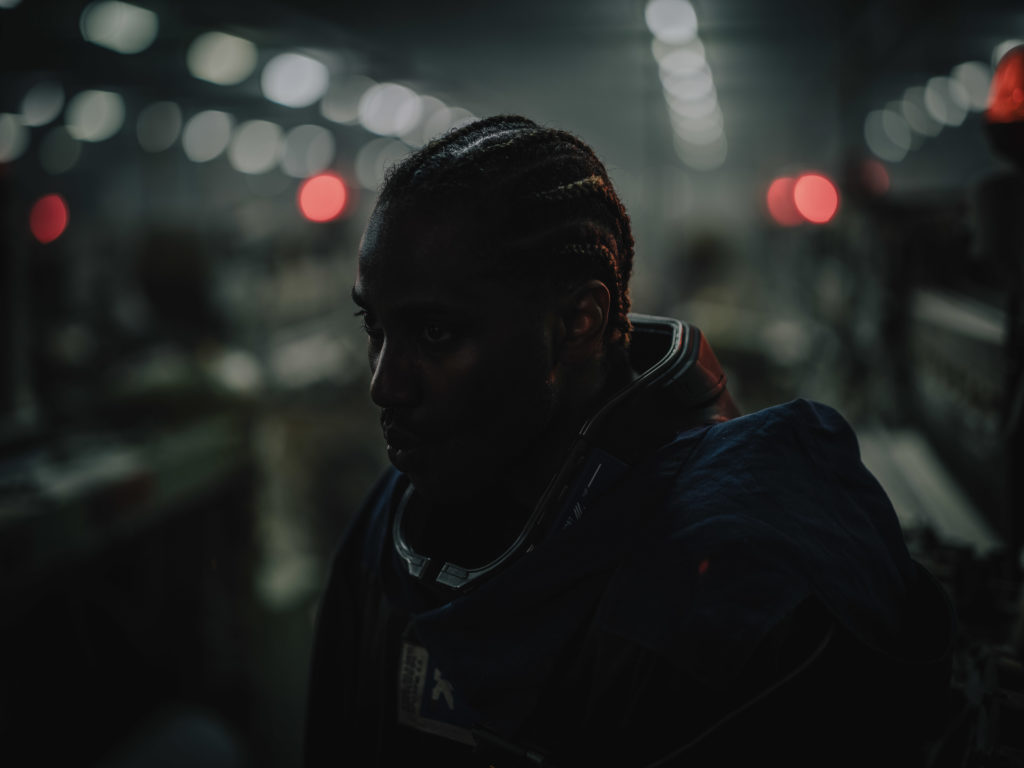
While The Creator is not the first to tackle the themes discussed above, it does so with heart and style, painting a picture of a broken soldier willing to do whatever it takes to reunite with the lover he believed lost. It is a statement on the capacity of love to overcome prejudice and trauma. It is about the power of hope, and how it can drive us to accomplish what we thought impossible. It is a movie about many things, and impressively manages to succeed in conveying most of its themes eloquently. While not the most original of science fiction stories, it provides more than enough food for thought to keep audiences satisfied.
Catch The Creator in cinemas across Malaysia starting from 28 September 2023.
To read more BASKL, click on the links below:
